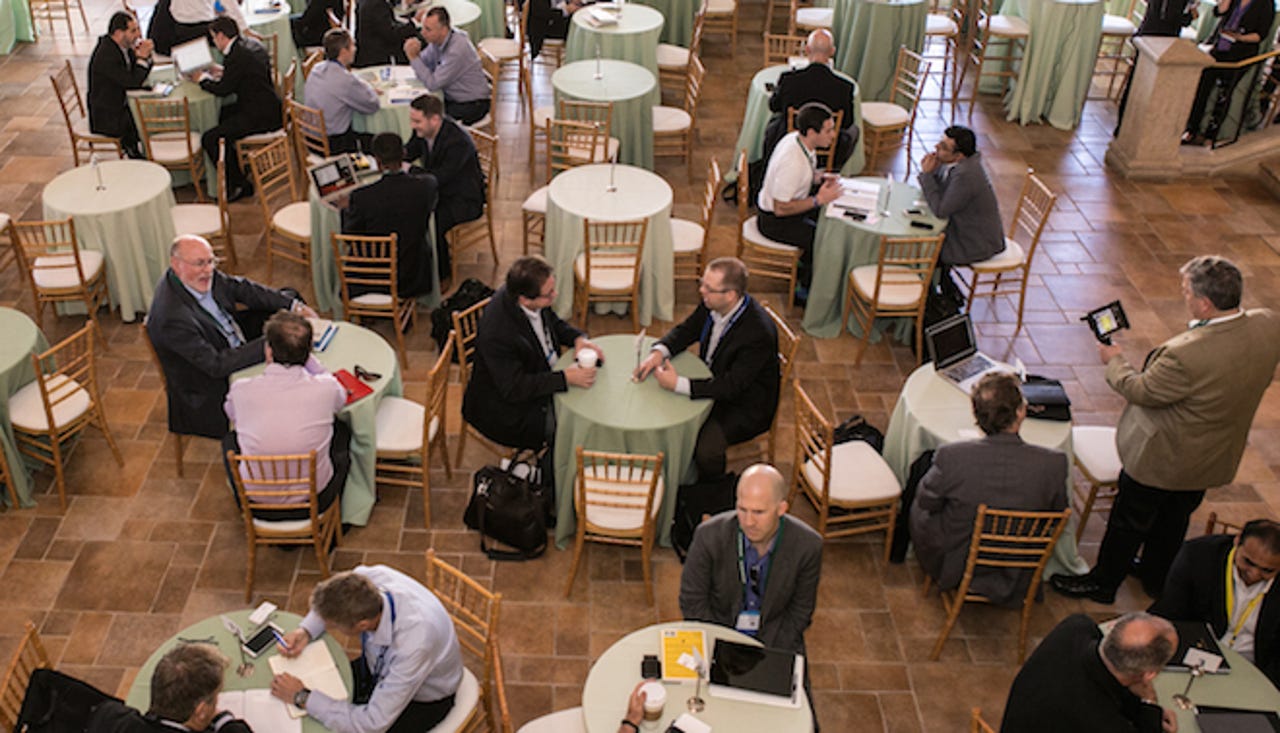Intel Capital's secret sauce: Invest early and look to the East


Networking at last year's Intel Global Capital Summit in San Diego.
Last year was one of the best on record for one of the world's biggest venture capital firms.
Intel Capital invested about a half-billion dollars in startups in 2015, making the past 12 months "one of our strongest years ever," the firm's new president, Wendell Brooks, told last year's Intel Global Capital Summit.
Part of that success is the company's willingness to pursue tech everywhere, including in Israel, where the firm has been very active in recent years.
In general, Israel has been a good bet for Intel. Many of the key components and chips used in some of the company's most popular products, including the company's current flagship Skylake processor family, were developed at Intel R&D labs in Israel. On top of that, Intel Capital has invested in numerous Israeli startups.
In fact, outside the US, Israel stands out as "the number one source for tech among foreign countries", Brooks said. According to outgoing Intel Capital head Arvind Sodhani, the firm has invested in 75 Israeli companies over the past 16 years.
And that tradition continued in 2015, with Intel Capital announcing at the summit that it was investing $22m in 11 companies worldwide, two of them from Israel.
Intel Capital, according to figures from Pitchbook Data, is one of most successful venture capital firms in the world. Since 2005, Intel Capital has made more successful M&A exits, with some 256, than any other investment firm and was number one in IPOs during that period.
The companies in which Intel Capital invests develop technologies that investors expect to pay off at some point in the future. If they are areas Intel itself is working, then all the better.
For example, one of Intel Capital's recent Israeli investments, Sckipio Technologies, is the first company to announce and ship commercial G.fast chipsets that will deliver up to 2Gbps broadband the last mile to the home over existing copper wiring.
"Sckipio and Intel have been working closely together since the beginning of the G.fast market and jointly announced the first G.fast residential gateway reference design in the fall of 2014," Dan Artusi, Intel VP and general manager of its Connected Home Division, said.
"This strategic investment is another milestone for the Intel Connected Home Division and Sckipio to deliver fiber-like speeds to the people on existing copper infrastructure."
Another recent Intel Capital investment, Stratoscale, will help Intel develop virtual computing services for datacenter clients, many of which, of course, use large amounts of Intel equipment.
"We developed a software-defined datacenter that can manage all activities with software alone," Stratoscale CEO Ariel Meisels said.
"It's virtualization to the extreme. We enable anyone to get into the cloud business, regardless of size, the type of hardware they use." The clouds that can be built with Stratoscale technology can be scaled up: "Maybe not as big as Amazon's cloud, but certainly sufficient even for a large enterprise to scale up to whatever their needs are," he said.
With the world awash in capital that has nowhere to go, startups are becoming an attractive investment target for many new players.
These latest arrivals range from new-money Chinese billionaires seeking safer investments overseas to protect capital from local financial crises, to crowdfunding funds that have enabled millions of smaller investors to get involved in an investment market that formerly was open only to millionaires.
As a result, the price for getting in on the ground floor of the most promising startups has climbed significantly in recent years, as has competition for the opportunity to invest in the best companies.
In response, according to Brooks, Intel Capital is prepared to go even further -- geographically and in terms of effort -- to find startup bargains.
"Valuations are very high in the tech field, but we don't see the corresponding IPO exits that you would expect. When valuations are this high, we have to be very cautious when investing," Brooks said.
Instead of playing that game, "We'd rather invest in emerging tech than get involved in an M&A game that we would have to get into to pursue the later-stage deals."
Read this
That's good news for Israel, where there is plenty of emerging early-stage tech, which has the added advantage of a strong Intel presence. The company has some 10,000 employees in Israel who work on all the company's major products.
Among the innovations in the Israel-developed Skylake processor, for example, is built-in support for support for wireless display, or WiDi, exactly the thing in which Screenovate, and Intel Capital investment from 2014, specializes.
With Screenovate's technology, users can 'pass' video between screens, playing a game or watching a video on their tablets, smartphones, and TVs without interruption, and without wires.
"People these days expect more from their mobile devices, but there are inherent limitations in screen size and input options," Intel Capital managing director Marcos Battisti said. "By eliminating these limitations, Screenovate allows a mobile device to function to its full potential."
At the Summit, Battisti also enthused about what Intel Capital has been finding in Israel. "Israel is an incredible country," Battisti said at the conference.
"It's impressive how much technology comes out of that country. There's an immense breadth of technology there, as well as experienced management teams. In tech, it's powerful and even ahead of Europe in many ways," he said.
"The potential for major exits located in Israel, despite the distance from Silicon Valley, is no worse than for companies in the US and Europe."